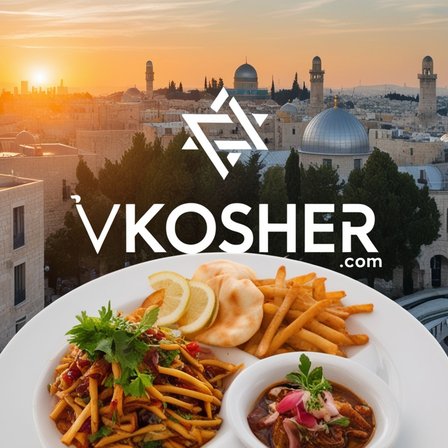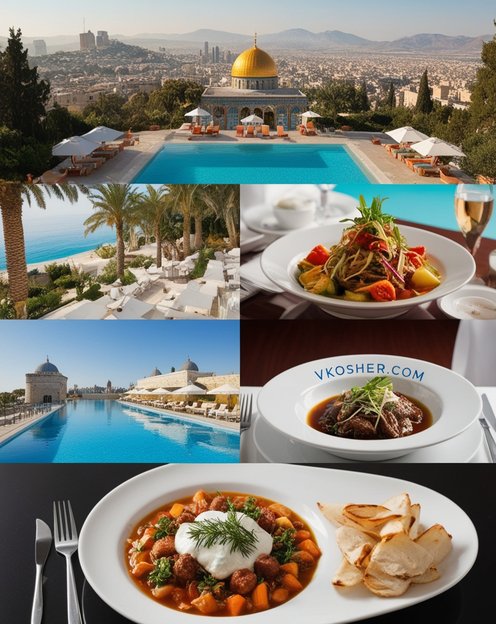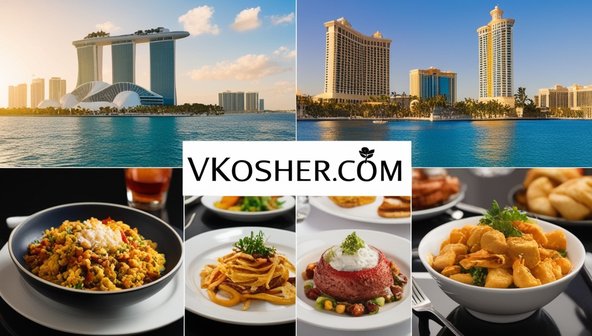Understanding Kosher Coke: A Unique Beverage in the World of Soft Drinks
Kosher Coke, also known as Kosher for Passover Coke, is a unique variant of Coca-Cola that has gained a significant following, not only among those who observe Jewish dietary laws but also among general consumers who prefer its distinct taste. This beverage, which emerges annually, is a testament to the adaptability and inclusivity of global brands like Coca-Cola, catering to the diverse needs of their consumer base.
The Origins of Kosher Coke
The story of Kosher Coke dates back to the mid-20th century when Jewish communities in the United States began seeking alternatives to regular Coca-Cola during Passover. Passover, a significant Jewish holiday, is marked by strict dietary restrictions, including the prohibition of chametz—leavened foods or those made from five specific grains: wheat, barley, rye, oats, and spelt. Corn, a common ingredient in many products, is also avoided by Ashkenazi Jews during this period. This posed a challenge for the consumption of regular Coca-Cola, which contains high-fructose corn syrup.
In response to this need, Coca-Cola developed a special formulation of its classic beverage, substituting high-fructose corn syrup with sucrose, a sugar derived from cane or beet. This variant was designed to meet the requirements of kosher certification, allowing observant Jews to enjoy Coca-Cola during Passover without compromising their religious practices.
The Making of Kosher Coke
The production of Kosher Coke is a meticulous process that adheres to the stringent standards of kosher certification. The primary difference between regular Coke and its kosher counterpart lies in the sweetener used. While high-fructose corn syrup is the standard sweetener in regular Coke, Kosher Coke is made with pure cane sugar. This simple yet significant change ensures that the beverage complies with Passover dietary laws.
Beyond the sweetener, the entire production process is closely monitored by a rabbinical supervisor, known as a mashgiach, who ensures that all ingredients and production methods adhere to kosher standards. The equipment used in the production of Kosher Coke is also carefully inspected and, if necessary, cleaned in a process known as kashering, to remove any traces of non-kosher substances.
The Taste of Tradition: Why Kosher Coke Is Special
One of the most notable aspects of Kosher Coke is its distinct taste. Many consumers, both Jewish and non-Jewish, have remarked on the unique flavor profile of this variant, often describing it as cleaner and crisper than the regular version. This difference is largely attributed to the use of cane sugar instead of high-fructose corn syrup, which is perceived by some as giving the drink a more natural sweetness.
For many, the taste of Kosher Coke is reminiscent of the original Coca-Cola formula used before the widespread adoption of high-fructose corn syrup in the 1980s. This has led to a broader appeal for Kosher Coke, with some consumers stocking up on the product during Passover to enjoy throughout the year.
Kosher Certification and Consumer Trust
Kosher certification is a crucial aspect of Kosher Coke, providing assurance to observant Jewish consumers that the product meets all dietary requirements. The certification process involves rigorous inspection and supervision by recognized kosher certifying agencies, ensuring that every ingredient and step in the production process complies with kosher law.
This certification is not only important for religious reasons but also plays a significant role in building consumer trust. In an era where transparency and ethical production are increasingly valued, the kosher certification of products like Kosher Coke serves as a mark of quality and integrity, appealing to a wide range of consumers beyond the Jewish community.
The Global Reach of Kosher Coke
While Kosher Coke was initially developed for the Jewish community in the United States, its popularity has spread to other parts of the world. In regions with significant Jewish populations, such as Israel and parts of Europe, Coca-Cola has made similar adaptations to cater to local dietary laws. This global reach highlights the brand’s commitment to inclusivity and its ability to adapt to the cultural and religious needs of its consumers.
In some cases, the availability of Kosher Coke has become a symbol of cultural recognition and respect, particularly in areas where the Jewish community may be a minority. The presence of Kosher Coke on store shelves during Passover is not just about providing a product—it’s a reflection of the broader societal acceptance and acknowledgment of Jewish traditions.
The Economics of Kosher Coke
Producing a special variant like Kosher Coke involves additional costs, from sourcing cane sugar to ensuring the entire production process meets kosher standards. Despite these added expenses, Coca-Cola has continued to produce Kosher Coke, recognizing the importance of serving this niche market.
The economic impact of Kosher Coke extends beyond the Jewish community. Retailers often see a spike in sales during Passover, as both Jewish and non-Jewish consumers seek out this unique version of the beverage. The demand for Kosher Coke has even led to instances of limited supply, with some consumers going to great lengths to obtain it.
This seasonal demand creates an interesting economic dynamic, where a product that is available for only a few weeks each year can drive significant consumer interest and brand loyalty. For Coca-Cola, the production of Kosher Coke is not just a business decision but also a demonstration of the brand’s commitment to meeting the diverse needs of its global customer base.
The Cultural Significance of Kosher Coke
Kosher Coke has become more than just a beverage; it’s a cultural phenomenon that resonates with many on different levels. For the Jewish community, it represents the ability to maintain cherished traditions while still enjoying modern conveniences. The availability of Kosher Coke during Passover allows families to include a beloved soft drink in their holiday celebrations, bridging the gap between religious observance and contemporary life.
For others, Kosher Coke is a nostalgic link to the past, offering a taste of Coca-Cola as it was once made. This connection to history and tradition is a powerful aspect of Kosher Coke’s appeal, underscoring the importance of preserving certain aspects of the original formula.
The Future of Kosher Coke
As consumer preferences continue to evolve, it’s likely that Kosher Coke will maintain its place as a beloved seasonal product. The ongoing demand for cane sugar-sweetened beverages suggests that Kosher Coke could continue to attract a loyal following, even beyond the Jewish community.
Moreover, the principles behind Kosher Coke—adapting to meet specific dietary needs while maintaining high standards of quality—could serve as a model for other products seeking to cater to diverse consumer bases. As more people become aware of and interested in the origins of their food and drink, products like Kosher Coke that are transparent about their ingredients and production methods may see increased demand.
In a broader context, the success of Kosher Coke highlights the potential for large brands to embrace cultural diversity and inclusivity in their product offerings. By acknowledging and respecting the dietary needs of different communities, companies like Coca-Cola can foster stronger connections with their consumers and contribute to a more inclusive marketplace.
Conclusion: Kosher Coke’s Enduring Legacy
Kosher Coke is a remarkable example of how a global brand can successfully cater to the specific needs of a cultural and religious community while also appealing to a wider audience. Its unique taste, rooted in the use of cane sugar, sets it apart from regular Coca-Cola, making it a sought-after product during Passover and beyond.
The continued popularity of Kosher Coke underscores the importance of cultural sensitivity and adaptability in the modern marketplace. As consumer awareness of dietary restrictions and preferences grows, products like Kosher Coke serve as a reminder that even the most iconic brands can evolve to meet the changing needs of their customers.
Whether it’s the nostalgic flavor, the assurance of kosher certification, or the cultural significance, Kosher Coke has secured its place as a beloved variant of one of the world’s most famous beverages. As it continues to be enjoyed by people around the globe, Kosher Coke stands as a testament to the power of respecting and celebrating diversity in all its forms.




